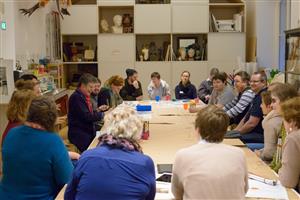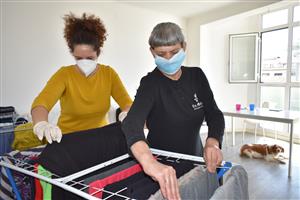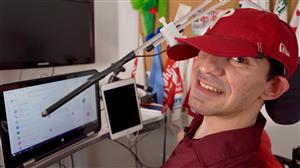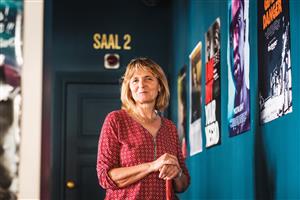Search Results
Search
Filter results
Advanced Filters
Your search returned 93 Solutions
-
Online accessibility self-check tool for companies
Barrier-Check educates and trains companies about barrier-free requirements. The site allows users to get a traceable and clear analysis of their own situation regarding accessibility by using selectable modules. Since its launch in 2015, more than 11,000 users have accessed the website more than 90,000 times.
OEZIV - Austrian Civil Invalid Association, Barrier Check, Austria -

Multi-stakeholder groups developing accessibility solutions in museums
ARCHES is an EU-funded project that brings together partners from the fields of culture, technology, and academia, as well as people with disabilities. The programme develops, tests, and implements solutions to improve access to culture. Innovations include tactile art and an app to aid museum navigation.
KHM - Museum of Art History Vienna, ARCHES, Austria -
Literacy app to stimulate reading development for children with Down Syndrome
La Mesita was developed at the Catholic University of Chile. It is a free app that supports the reading development of children, especially those with Down Syndrome. Users can select a specific environment, such as a fair or an amusement park. La Mesita adapts to the user´s characteristics, and allows for an endless number of activities.
Catholic University of Chile, Centre for the Development of Inclusive Technologies, La Mesita, Chile -
Equal employment opportunities
Specialisterne is internationally recognised as the first and foremost example of how highly functioning people with autism can become effectively integrated in society and provide valuable, high quality services to their employers. The model has the flexibility to fit local culture and community in cooperation with local stakeholders.
Specialisterne Foundation, Equal employment opportunities, Denmark -
Enfranchising people under guardianship
Till 2013 Japan’s Election Law deprived people under adult guardianship of their right to vote and to stand for elections. In a spectacular court case, the Tokyo District Court condemned this as unconstitutional. The repeal of the discriminatory article led to the enfranchisement of more than 136,000 persons.
Tokyo District Court, REVISION OF ELECTION LAW, Japan -
Inclusive care worker training
Within the scope of the EU project "Inclusive Care Worker", an inclusive teaching model for qualification in the social sector and support modules for a successful integration into the labour market were developed. It enables persons with learning difficulties and disabilities to choose a care profession.
Lebenshilfe Graz and Surroundings - Voitsberg, Inclusive care worker training, Austria -

People-centred housing services for persons with psychosocial disabilities
Founded by Support-Girona from Spain in 2018, the Housing Commission supports people with psychosocial disabilities to access housing. A person-centred methodology ensures that they can decide for themselves where and how they want to live. By 2022 more than 50 people have found housing in this way.
Support Girona, Top House Housing Commission, Spain -

App-based machine learning enabling persons with speech disabilities to be understood
Voiceitt is an app that uses AI to recognize the speech patterns of its users and enables people with speech disabilities to communicate in their own voice and directly with others. The app, developed by a start-up company from Israel, uses Artificial Intelligence components to continuously improve its automated speech recognition capabilities.
Voiceitt, Voiceitt, Israel -
Assistive technologies and teacher training in mainstream schools
The "Active Inclusion" project introduces assistive technologies and learning possibilities into primary schools and carries out networking and lobbying activities. Also the programme offers trainings for teachers from participating schools as well as educational software programmes for children with disabilities.
Open The Windows, North Macedonia -

Mobile App Providing Captioning and Audio Description in Cinemas
Film distributors provide Greta & Starks with an audio description and subtitles for films that are showing in cinemas and the company uploads these to the free GRETA app, which people can then use in cinemas without needing special equipment. Over 30,000 people used the app between 2014 and 2018, and 80 to 100 films are added each year.
Greta & Starks Apps, GRETA App, Germany